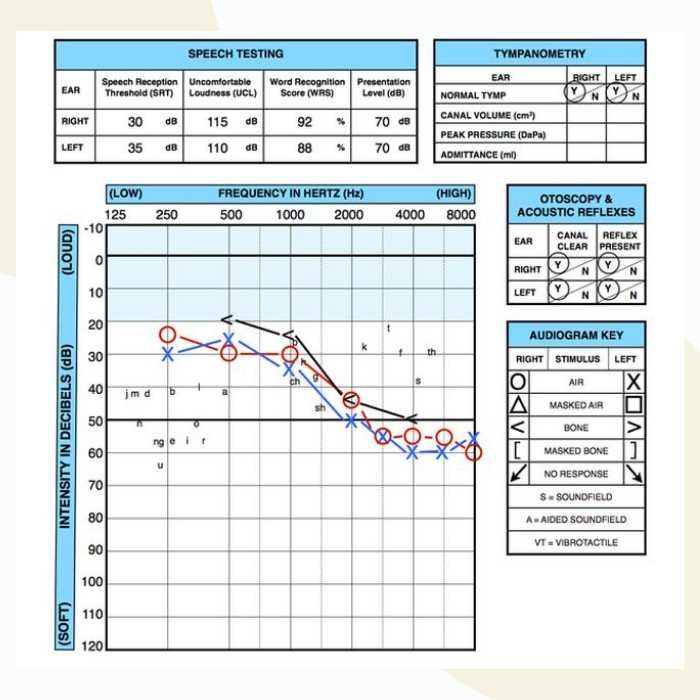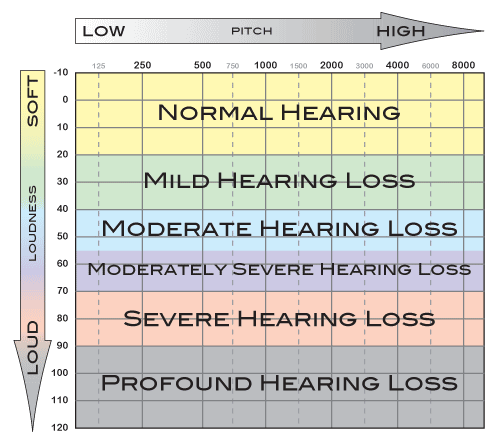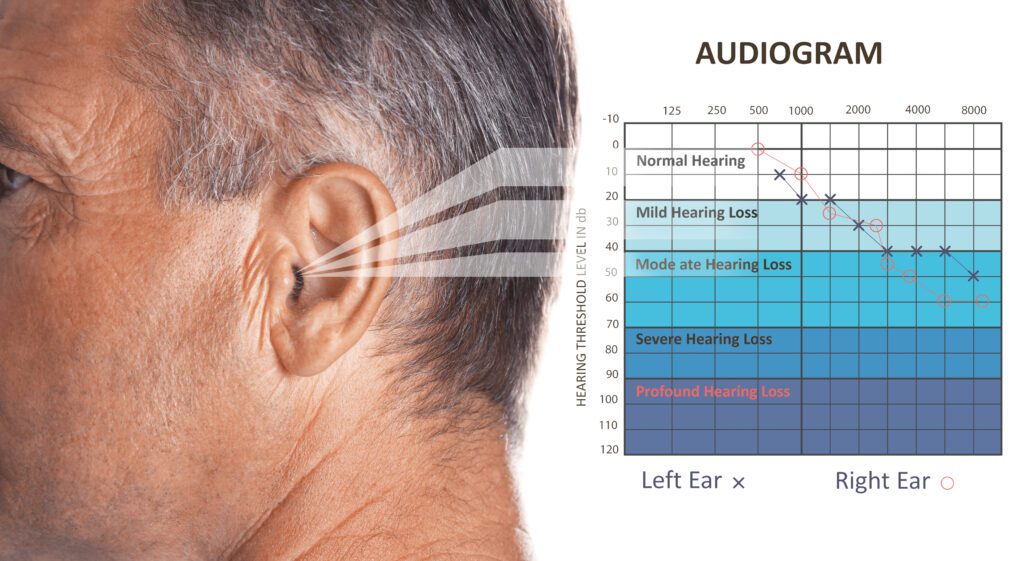
Denied VA Hearing Loss Claim: If your VA hearing loss claim was denied, you’re not alone—and you’re definitely not out of options. Every year, thousands of veterans get denied for hearing-related issues despite years of loud service environments like combat zones, aircraft carriers, artillery training, or even prolonged exposure to engine rooms and flight decks. But here’s the truth: denials are common, and successful appeals are possible, even likely, with the right strategy. Whether you’re trying to get your first claim approved or appeal a frustrating decision, this comprehensive guide will show you how to fight back and win the benefits you earned.
Denied VA Hearing Loss Claim
A denied VA hearing loss claim might feel like a door slammed shut—but really, it’s just the beginning. With the right mix of medical evidence, personal statements, and appeal strategy, you can open that door and walk through to the benefits you earned. Don’t sit in silence. Get help, stay persistent, and don’t take no for an answer. Your hearing changed because of your service. The VA owes you for that.
| Topic | Details |
|---|---|
| Appeal Deadline | File within 1 year of your denial decision |
| Best Evidence Types | Nexus letters, audiograms, buddy statements, and service treatment records |
| Appeals Options | Higher-Level Review, Supplemental Claim, or Board of Veterans’ Appeals |
| Approval Rates | 74% of hearing-related claims are eventually approved with proper documentation (source: BVA FY2023 data) |
| Support Resources | Free help from VSOs like DAV, VFW, American Legion; legal help from VA-accredited attorneys |
| Appeal Forms | VA Forms 20-0996 (HLR), 20-0995 (Supplemental), and 10182 (Board) |
| Official Reference Site | VA Decision Reviews – VA.gov |
| VA Audiology Locations | Find a VA Audiology Clinic |
What’s Really Going On with VA Hearing Loss Denials?
Let’s break it down. The VA typically denies hearing loss claims for reasons like:
- Lack of medical nexus—a direct connection between your hearing loss and your military service.
- Inadequate or inconclusive Compensation and Pension (C&P) exams.
- VA claims your hearing is still within “normal” limits based on their standards.
- Missing or incomplete service records that prove noise exposure.
It’s frustrating, especially when you know in your gut—and your ears—that your hearing isn’t the same since service. The good news? You can absolutely appeal and build a stronger case.
Step-by-Step Guide: How to Appeal a Denied VA Hearing Loss Claim
Step 1: Understand the Denial
First, read your VA denial letter thoroughly. It will explain why they turned down your claim. The most common phrasing includes:
- “No evidence of hearing loss during active duty.”
- “No service connection established.”
- “Audiogram results fall within normal hearing range.”
Make notes on the exact reason—this will help guide your appeal.
Step 2: Strengthen Your Case with New Evidence
The VA doesn’t just want to hear your story—they want proof. If your claim got denied, you’ll need new and relevant evidence that connects the dots.
Get a Detailed Audiogram
Schedule a hearing evaluation from a civilian audiologist if you didn’t already. Ask them to test for:
- Frequency-specific hearing loss (especially at 4000 Hz, often damaged in military noise exposure).
- Word recognition scores.
- Tinnitus (ringing in the ears), which is commonly related and separately compensable.

Obtain a Nexus Letter
A nexus letter is the foundation of your appeal. It’s a professional medical opinion stating your hearing loss is “at least as likely as not” caused by your military service.
What to include in a strong nexus letter:
- Your service history (MOS, noise exposure events, duration).
- Clear connection between that history and your current hearing condition.
- Statement using VA language: “at least as likely as not.”
Many independent audiologists, ENTs, or private clinicians write these letters for a fee. Your VSO might help you find a provider who does it affordably or for free.
Add Buddy Statements
Sometimes, records don’t tell the full story. That’s where buddy statements come in. These are written declarations from fellow service members or even family members.
What a solid buddy letter might say:
“I served with John during Operation Iraqi Freedom. We worked near artillery fire regularly. I noticed him saying ‘what?’ more often during and after deployment.”
Keep it honest, brief, and personal.
Collect Service Treatment and Post-Service Medical Records
Use Archives.gov to request service medical records. Civilian audiology or ENT reports post-service can further back your case.
Step 3: Choose the Right Appeal Path
The Appeals Modernization Act (AMA) gives you three solid appeal options:
Higher-Level Review (VA Form 20-0996)
- No new evidence allowed—just a fresh review of your existing file.
- Can request an informal conference with the reviewer.
- Best for fixing clear errors or overlooked documentation.
- Turnaround: 4–5 months.

Supplemental Claim (VA Form 20-0995)
- Submit new and relevant evidence—like a nexus letter or updated test.
- Can be used multiple times.
- Good if you didn’t have everything in the original claim.
- Turnaround: 6–12 months.
Board of Veterans’ Appeals (VA Form 10182)
- Case goes to a Veterans Law Judge.
- Options:
- Direct Review – No hearing, no new evidence.
- Evidence Submission – You submit new documents within 90 days.
- Hearing – Speak directly to a judge (via video or in-person).
- Turnaround: 12–18 months or more.
Pro tip: If you’re confident in your new evidence and want to make a statement, the Board route can be powerful—just slower.
Step 4: Ace the C&P Exam
If your claim or appeal requires a new C&P (Compensation & Pension) Exam, here’s how to show up prepared.
Before the Exam:
- Review your symptoms and describe how they affect your daily life.
- Bring your civilian audiogram or recent hearing evaluations.
- Avoid saying “I’m fine” or minimizing your symptoms.
During the Exam:
- Be honest—but clear.
- Mention how hearing loss affects work, family, communication, safety.
- If tinnitus is a problem, say so clearly.

Step 5: Submit Your Appeal and Track It
There are your quick form:
- VA Form 20-0996 – Higher-Level Review
- VA Form 20-0995 – Supplemental Claim
- VA Form 10182 – BVA Appeal
After filing, monitor your claim using:
- VA.gov Claim Status Portal
- Call 1-800-827-1000 (VA Claims Hotline)
- Use the VA: Health and Benefits App for mobile tracking
Case Example: From Denial to Approval
Mark, Army Infantry Vet (2006–2011)
- Original claim denied in 2022: “No service connection.”
- Submitted a Supplemental Claim in 2023 with:
- A private audiologist nexus letter.
- Buddy letter from fellow soldier.
- New audiogram showing 40 dB loss at 4 kHz.
- Result: Approved at 20% hearing loss and 10% tinnitus in 2024, back-paid to original claim.
His appeal took 7 months total. That’s how it’s done.
Veterans Alert: 2025 Pension Settlement Is Live—Claim Form & Amount Inside!
Veterans With 70% Disability and 2 Parents: Here’s Exactly How Much You’ll Get Monthly
Frequently Asked Questions (FAQs)
Q: How long do I have to appeal a denied VA claim?
You have 1 year from the date of the decision letter to file any of the three appeal options.
Q: Can tinnitus support my hearing loss claim?
Yes. Tinnitus is often service-connected and can be rated separately from hearing loss.
Q: Should I get a lawyer for my appeal?
You don’t have to—but VA-accredited attorneys can help a lot, especially for BVA hearings or if you’re denied multiple times.
Q: How do I find a free VSO to help me?
Visit ebenefits.va.gov or call your local VA regional office. Groups like DAV, VFW, and American Legion have reps ready to help.
Q: What’s the average payout for hearing loss VA claims?
In 2024, a 10% rating pays about $171.23/month. Ratings can go higher if the loss is severe, and tinnitus adds more.











